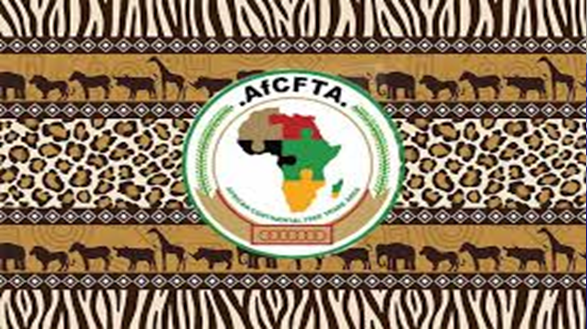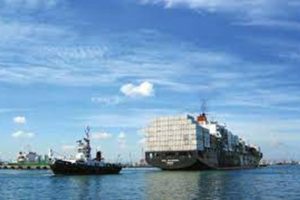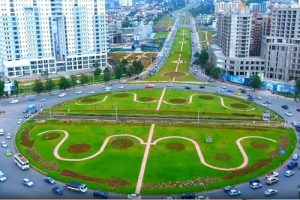
The African Continental Free Trade Area (AfCFTA), launched in 2019, has the potential to be a true game-changer for the African continent. This ambitious initiative aims to create the world’s largest free trade area, connecting 1.3 billion people across 55 African countries and representing a combined GDP of over USD 3 trillion.
At its core, the AfCFTA seeks to revolutionize intra-African trade by eliminating tariffs on 90% of goods, facilitating the free movement of people and capital, and promoting the development of regional value chains. By tearing down these long-standing barriers, the AfCFTA presents an unprecedented opportunity for African nations to unleash their economic potential and foster sustainable, inclusive growth, documents unveiled.
One of the primary benefits of the AfCFTA is its ability to boost intra-African trade, which currently stands at a mere 15% of the continent’s total trade. By comparison, intra-regional trade accounts for 58% of total trade in Asia and 67% in Europe. Increasing trade between African countries can spur industrialization, create jobs, and diversify economies that have long been reliant on the export of raw materials.
Furthermore, the AfCFTA can help African nations overcome the challenges posed by pandemic and other global economic disruptions. By strengthening regional supply chains and reducing dependence on external markets, the agreement can build resilience and insulate countries from external shocks. This, in turn, can lead to greater food security, improved access to essential goods, and more stable economic growth.
Beyond the economic benefits, the AfCFTA also holds the promise of fostering deeper political and social integration across the continent. By facilitating the free movement of people and promoting cross-border collaboration, the agreement can serve as a catalyst for cultural exchange, knowledge sharing, and the development of a shared African identity.
However, the implementation of the AfCFTA is not without its challenges. Harmonizing trade policies, upgrading infrastructure, and addressing concerns over job losses and revenue shortfalls will require significant investment and political will. Navigating these complexities will be crucial to realizing the full transformative potential of this historic agreement.
As African nations work to overcome these obstacles, the success of the AfCFTA will have far-reaching implications for the continent’s future. By fostering economic integration, promoting industrialization, and strengthening regional cooperation, the AfCFTA holds the promise of transforming Africa into a more prosperous, resilient, and interconnected continent – one that can harness its vast resources and human capital to create a brighter, more equitable future for all.
According to ENA’s recent report, African countries must work hand in hand to realize the African Continental Free Trade Area (AfCFTA) as it is a very important agreement that enables African countries to deal without customs, administrative and bureaucratic constraints, Moroccan Ambassador Nuzha Alawi Mohammadi said.
In an exclusive interview with ENA, the Moroccan Ambassador to Ethiopia said her country is ready to work with other African countries for the implementation of the AfCFTA agreement.
According to her, economic cooperation between Morocco and other African countries has been going on for two decades. The country has been trading with several countries in Africa, including central and West African nations, as well as with countries outside the African continent.
“Morocco is the top investor in West Africa, and the second in the African continent in general,” she stated. Elaborating on the economic policy of Morocco, Ambassador Mohammadi said the country works under South-South cooperation, meaning joint development.
“Morocco has experience and knowledge and is ready to share it with other African countries, and this was done after the visit of His Majesty King Mohammed VI to Sub Saharan Africa.”
The Ambassador pointed out that the visit had a clear message, which is sustainable development, South-South cooperation and sharing of Moroccan experience with African countries in order to build a unified, prosperous and stable Africa.
Ambassador Mohammadi further explained that the AfCFTA is very important and a new system in the global economy that enables African countries to deal without customs, administrative and bureaucratic constraints.
African countries have trade exchange with each other as well as with other countries, but “we must build the African Continental Free Trade Area in order to strengthen the African economy,” the ambassador pointed out.
Ambassador Mohammadi finally called on African countries to work hand in hand to implement the AfCFTA so that it becomes a reality and “the region becomes free and real.”
African leaders have a crucial role to play in promoting free trade and regional integration to drive economic growth across the continent. Here are some key expectations and actions they should take: Political Commitment and Leadership is very crucial role for the integration of Africans so that African leaders must demonstrate unwavering political commitment to the AfCFTA and regional integration initiatives. This includes actively championing the agreement, advocating for its ratification, and ensuring its effective implementation at the national level. Strong political leadership is essential to overcome any resistance or skepticism and build a shared vision for a more economically integrated Africa.
Furthermore, many argue that harmonizing policies and regulations would be a spring board for Africans. In due course, African leaders must work collaboratively to harmonize trade policies, regulations, and customs procedures across the continent. This includes streamlining tariff schedules, simplifying rules of origin, and aligning non-tariff measures to create a more coherent and predictable business environment. Harmonization efforts should also extend to areas like investment, competition, and intellectual property rights to foster a seamless regional market.
Besides investing in Cross-Border infrastructure might be the question that matters at this concurrent paying tribute to improving cross-border infrastructure, such as roads, railways, and energy networks, as the frame work to facilitating the movement of goods, services, and people across Africa. African leaders should prioritize regional infrastructure projects and mobilize both public and private funding to address the continent’s significant infrastructure gaps. Leveraging initiatives like the Programmed for Infrastructure Development in Africa (PIDA) can help coordinate and align these infrastructure investments, so stated documents.
According to many scholars, enhancing institutional capacity is the critical factor for regional integrity that African leaders must strengthen the institutional capacity of regional economic communities and the AfCFTA Secretariat to ensure effective implementation and enforcement of the agreement. This includes providing adequate resources, building technical expertise, and empowering these institutions to monitor compliance, resolve disputes, and coordinate policy harmonization.
Moreover, giving due emphasis in supporting small and medium enterprises (SMEs) should be taken as the first steps of the ladder for development. For this reason, African leaders should implement targeted policies and programs to support the participation of SMEs in regional and continental trade. This can include providing access to finance, facilitating access to information, and investing in skills development to help SMEs navigate the complexities of the AfCFTA. Strengthening the capacity of SMEs is crucial for ensuring that the benefits of free trade are widely distributed across the continent.
Might also be so crucial and recommended for those steering the wheel of Africa to foster promoting free movement of people; facilitating the free movement of people, goods, and capital across borders is a key pillar of the AfCFTA. African leaders should work to remove barriers to the free movement of people, such as visa requirements, and promote the mutual recognition of professional qualifications. Enhancing labor mobility can help address skills gaps, foster cultural exchange, and strengthen regional integration.
By taking these actions and demonstrating unwavering commitment to the AfCFTA and regional integration, African leaders can unlock the transformative potential of free trade and drive sustainable economic growth across the continent.
BY LAKACHEW ATINAFU
THE ETHIOPIAN HERALD FRIDAY 16 AUGUST 2024





